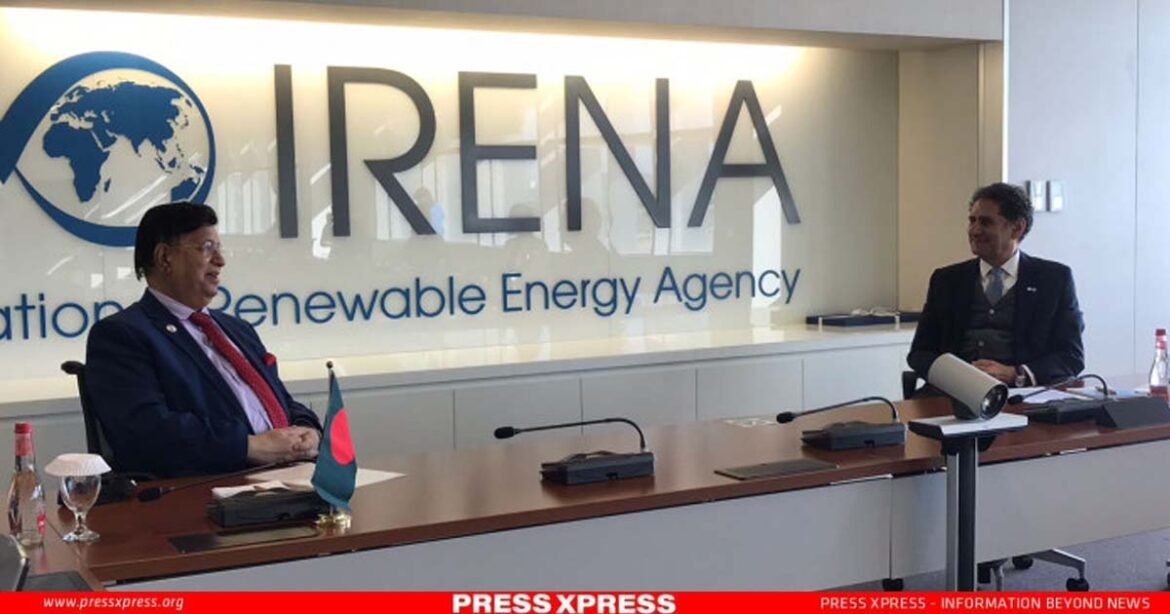In a significant development, Bangladesh has been elected as the Vice Chair of the 27th Council of the International Renewable Energy Agency (IRENA), the second-highest body of the Agency comprising 168 countries and the European Union. This prestigious position highlights Bangladesh’s growing influence and commitment to the renewable energy sector.
At the recent two-day council meeting held in Abu Dhabi, representatives from more than 100 countries gathered to discuss the current state of investments in renewable energy, partnerships, and best practices in energy transition.
Vice Chair of 27th Council of IRENA
- Countries: Represents 168 and the EU
- Recent Meeting: Abu Dhabi
- Topics: Investments in renewable energy, partnerships, energy transition
- Bangladesh’s Role: Led by Mohamed Abu Zafar
Ambitious Targets and Collaborations
In its National Statement at the Council meeting, Bangladesh set a bold and ambitious target to install approximately 30 GW of renewable energy by 2041. This target, which requires an investment of at least $30 billion, clearly demonstrates the country’s commitment to a sustainable and green future.

Bangladesh has urged IRENA and associated bodies to facilitate necessary funding, capacity building, and technology transfer to achieve this goal. On the sidelines of the council meeting, the Bangladesh delegation held a bilateral meeting with IRENA’s Director of Country Engagement & Partnership to discuss various initiatives, including the Renewable Readiness Assessment currently underway, Flexibility Analyses, Funding from ETAF (Energy Transition Accelerated Financing), and private sector engagement to achieve national targets in renewable energy.
About IRENA Council
IRENA, the International Renewable Energy Agency, is an intergovernmental organization dedicated to facilitating countries in their shift towards a sustainable energy future. Serving as a primary platform for international cooperation, IRENA acts as a center of excellence and a repository of knowledge on policy, technology, resources, and finance related to renewable energy. It promotes the global adoption and sustainable utilization of various renewable energy sources, encompassing bioenergy, geothermal, hydropower, ocean, solar, and wind energy. IRENA’s mission is rooted in advancing sustainable development, ensuring energy access, enhancing energy security, and fostering low-carbon economic growth and prosperity worldwide.

Current Energy Scenario
Bangladesh’s commercial energy resources comprise indigenous natural gas, coal, imported oil, LPG, imported LNG, imported electricity, and hydroelectricity. However, biomass accounts for approximately 25% of the country’s primary energy, while the remaining 75% is met by commercial energy sources. Natural gas constitutes about 59% of commercial energy, with imported LNG accounting for 13% of this share. Imported oil represents a significant portion of the remaining commercial energy, with Bangladesh importing around 9.56 million metric tons of crude and refined petroleum products this year. Coal is primarily used as fuel in brick kilns and thermal power plants.

In addition to conventional energy sources, Bangladesh has taken steps to harness renewable energy. Solar Home Systems (SHS) in both on-grid and off-grid areas are generating approximately 723.68 MW of power. Moreover, some poultry and dairy farms have set up biogas plants, utilizing the generated biogas for cooking and power generation, contributing about 0.69 MW. Furthermore, the country is generating 0.4 MW of electricity through biomass gasification.
Bangladesh’s final consumption of total energy is estimated to be around 57.20 million tonnes of oil equivalent (MTOE), with an average annual increase of approximately 6%. The per capita energy consumption stands at 346 kilograms of oil equivalent (kgoe), and the per capita electricity generation is 608.76 kWh, with 100% access to electricity. However, these figures are lower than those of neighboring South Asian countries.
Bangladesh also has a bright potential to produce electricity from wind and mini-hydro. Recent developments have seen the introduction of solar-powered irrigation pumps in various regions of the country. The widespread adoption of these solar-powered pumps can alleviate the reliance on diesel and electricity, thereby reducing the overall burden on conventional energy sources.

EU Funding and Global Commitments
Bangladesh has secured substantial funding from the European Investment Bank and the European Union for renewable energy generation and capacity building. This support aligns with global commitments made at COP28, where 123 nations, including Bangladesh, pledged to double the average annual rate of energy efficiency improvements from about 2% to over 4% by 2030 under the Global Renewables and Energy Efficiency Pledge (GREEP).
The Mujib Climate Prosperity Plan (MCCP) outlines ambitious goals, aiming for 30% power from renewable sources by 2030 and 40% by 2041. However, as of October 2023, Bangladesh had only achieved 4.61% renewable energy, raising concerns about the government’s commitment to long-term targets.

Integrated Energy and Power Sector Master Plan (IEPMP) 2023
The newly developed Integrated Energy and Power Sector Master Plan (IEPMP) 2023 has set more modest targets, proposing renewable energy contributions of only 2.8% by 2041 and 4.4% by 2050. These targets contradict the ambitious goals set by the Paris Agreement, the Mujib Climate Prosperity Plan, and the Prime Minister’s commitment to supply 40% of electricity from renewable sources by 2041.
Integrated Energy and Power Sector Master Plan (IEPMP) 2023
Targets:
- Renewable Energy Contribution:
- 2.8% by 2041
- 4.4% by 2050
- Comparison:
- Contradicts:
- Paris Agreement goals
- Mujib Climate Prosperity Plan
- Prime Minister’s 40% renewable electricity target by 2041
Potential Benefits
Despite the challenges, the potential benefits of renewable energy are significant. Since 2000, renewable power has saved an estimated $521 billion in fuel costs globally, with $199 billion in savings in Asia alone, according to IRENA.
Conclusion
As Bangladesh continues to prioritize renewable energy sources and implement supportive policies and investments, the country has the opportunity to achieve sustainable economic growth while contributing to global efforts in addressing climate change.


